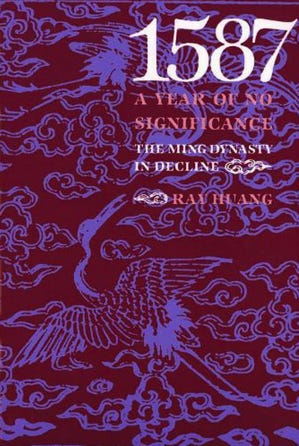#45 / Synchronous vs. Asynchronous: Communication in the AI Era
Hello my friend! 👋
Let’s chat about something interesting: the whole sync vs. async communication, especially now that we’re all about AI.
So, here’s the thing: AI has been a game-changer for how we handle information. It’s like, if you need to gather stuff, organize it, and then present it later, AI’s your best buddy. But, when it comes to real-time chats, bouncing ideas back and forth on the spot, AI’s kinda sitting on the sidelines.
I remember this one time, my old boss pointed out how I nailed it when I had my stuff prepared ahead of time, like presentations. I could make it look easy. But throw me into a live fire, like a developer hitting me with tough questions, and I’d start to trip over my words, struggling to get my point across. It was definitely a wake-up call about my communication skills. Sure, I’ve gotten better since, but it’s a work in progress.
Basically, it boils down to this: when I’ve got the time to prep, with AI to back me up, I can get my message across no problem. But that instant, off-the-cuff communication? That’s a whole different ball game, and AI isn’t quite there yet in helping us out. It’s one of those areas where we still have to rely on good old human brainpower.
So, I believe that synchronous communication, the ability to process information in real time, remains a precious human meta-skill (for now). My plan is to practice this real-time expression and communication more, while also exploring how to leverage AI tools to enhance my asynchronous communication abilities
.
Here’re a few things I’d like to share with you today 🙂
Omelette and meme from Hideo Kojima’s game
Planning to do more game review :)
1587, A Year of No Significance
Empathy for a little spider
God of War: Lessons in Fatherhood
Omelette and meme from Hideo Kojima’s game
This weekend was Auckland’s Taiwan Festival. My family and I went all out, enjoying the food and fun. Standing in line for oyster omelette, a girl from Taiwan behind me mentioned that this stall’s omelette was the most authentic because, just like at Taiwan’s Shilin Night Market, they top it with cabbage, which others don’t. That got me thinking about what “authentic” really means. The closer something is to its original form, the more “authentic” it’s considered, with little change. But since culture spreads through replication, variations are inevitable. Like, the Sichuan dishes made by local chefs in Arab countries might not be as spicy as the “original” taste.
This idea first struck me about 20 years ago while playing Hideo Kojima’s “Metal Gear Solid 2,” where lengthy cutscenes about memes introduced me to the relationship between culture and memes. It seems even video games can deepen our understanding of the world 🕹️
Planning to do more game review :)
This year, I’ve set a “Learn by Doing” goal for myself to improve my English commentary and research skills. I figured a good way to do this would be by writing reviews for the games I play.
I expect to play around 10–15 games this year, each taking up several hours, similar to reading a book, making them worth reviewing. At the same time, this will help me practice collecting information, conducting research, and organizing my thoughts.
I plan to keep editing to a minimum but aim to consciously practice my delivery during recording. I’m aiming for the natural, approachable, and thoughtful style seen in MKBHD’s tech videos, with a few unique takes of my own. This approach should significantly improve my expressive abilities.
My basic rule: Play a game while doing some research on it. Finish the review post-completion before moving on to the next game.
To my fellow gamers, what do you look for in a game review?
1587, A Year of No Significance
Recently, I finished reading “1587, A Year of No Significance” and was utterly impressed. It offered me insights similar to when I first encountered “Sapiens: A Brief History of Humankind,” making me realize history can be viewed from such perspectives. “1587, A Year of No Significance” explores the seemingly ordinary year of 1587 in Chinese history, a year without major historical events. Yet, the book dives deep into the lives of six characters from the Ming Dynasty, exposing the critical flaws of what was then a mighty empire, showing that its downfall wasn’t decades later but had already begun with clear cracks appearing at that time.
The approach to writing history here is innovative, focusing on six figures: Emperor Wanli (Shenzong), Zhang Juzheng, Shen Shixing, Qi Jiguang, Li Zhi, and Hai Rui. Each perspective represents a crucial societal role, such as the ruling class, political representatives of the bureaucratic elite, reformers, military heroes, proponents of academic and philosophical reform. However, each was trapped in a cul-de-sac on their path of exploration because the empire was governed by morality, controlled by the bureaucratic system, which was inefficient. This foundation meant any reforms wouldn’t truly shake the empire’s core, hence not achieving real transformation.
Reading this book, I’ve gained a deeper understanding that perceiving the world necessitates specific viewpoints. These perspectives can be grand or personal, but they must be detailed, explaining why storytelling is often the most fitting way to narrate or rationalize. I’ve come to a deeper realization that switching perspectives and storytelling will be crucial methods in my future expressions. Storytelling is indeed a vital skill.
Empathy for a little spider
One morning, I opened the door to find a little spider had spun a perfect web right in front of our main entrance. It was sitting smack in the middle, probably quite proud of its work. But, the web was exactly blocking our door, and I had no choice but to remove it. It’s kind of tragic for the spider to encounter such a systemic blind spot.
The next day, it built an identical web in the same spot. I didn’t have the heart to destroy it this time, but I forgot about it when I came home in the evening and ended up breaking the web anyway.
On the third day, the spider built its web on the side of the door instead of directly in front, so it wasn’t in the way. Our whole family agreed to keep this web. (As a working stiff, I’ve developed a bit of empathy for the little spider, haha.)
God of War: Lessons in Fatherhood
Let’s talk about something a bit more personal today – my journey with Kratos in God of War 4. As a dad in my 40s, I’ve learned that life’s problems can’t always be solved with a simple ‘smash’. This game made me see Kratos in a new light, struggling with fatherhood just like I am, teaching me about patience, understanding, and the importance of guiding with care.
Have a great one and see you soon!
Bear Academy Newsletter
Non-crap tips and thoughts on design, product and technology ✨
🐻 Bear Who?
Hi there 👋, I’m Bear, a seasoned Product Designer with 15 years of overall design experience and six years in product design, transforming the user experiences for millions 📝
As an Apple Award-Winning Podcast Host at BearTalk and a Design Mentor at Springboard and CareerFoundry, I apply my self-taught design skills and science background to solve complicated problems and mentor budding designers 😃
In my downtime, you’ll find me reading, drawing, podcasting, and making videos about everything from tech to design and productivity 👨🎨
🤓 Work
💼 What I do:Product Designer at Xero
🌃 I also do:Design Mentor at Springboard and CareerFoundry / Founder at Bear Academy
🎤 Side hustle:Podcast host at Award-winning podcast BearTalk
💡 Goodies
Bear Academy - my courses around UX Design, AI, etc
Bear Academy Newsletter - my free newsletter, which you are reading now
Beartalking.com - all my posts, English and Chinese
Youtube.com/@Bearliu - A video is worth a thousand words
💬 Contact
https://twitter.com/bearbig - Majorly I post in Chinese
bear@beartalking.com - The old fashion email way
LinkedIn.com/in/bearliu - My professional life






